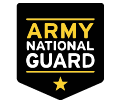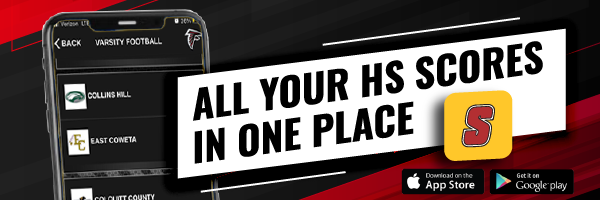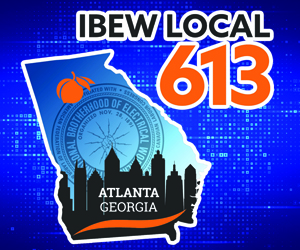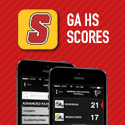Most college football fans only see one side of recruiting-nationally televised all-star games, announcements filled with hoopla, and heralded recruits flip-flopping on their commitments. While this may be the climate in which big-time BCS programs recruit, a whole different world exists for those players not getting offers from SEC or ACC schools. These players fight for spots on lesser-known college rosters just to be able to continue playing. Sean Gilrain, a Class of 2011 quarterback at Centennial High School in Roswell, boasts a near-perfect GPA and prototypical size for the position at 6-foot-3, 185 pounds. Over Centennial’s spring break, Gilrain and Knights’ head coach, Jeff Measor, took a trip to the northeast to visit Harvard, Yale and Dartmouth, three schools that have shown interest in Gilrain for his brains as well as his football talents.
Gilrain is planning to major in business or finance and got a comprehensive look at the finest the Ivy League has to offer.
“They’re all great academic institutions and incredible for your future,” Gilrain explained recently in an exclusive interview with Score. “That’s number one for me: the quality of the education.”
Gilrain was also impressed with the schools’ emphasis on hitting the books.
“You only practice two hours a day,” he said. “There’s much less emphasis on football and the coaches definitely allow you the time to get your work done.”
Harvard pitched a strong, successful history in football and the academic side of the school sells itself. At Yale, Gilrain explained, coaches urged him “to find the right fit on the football field and what system you like best, because they all want you academically and are all relatively similar.”
Ivy League schools offer no academic scholarship, although a player’s experience can be similar on the field to that of a Division I player. “There’s lots of money at all these schools, so the facilities are pretty similar to what you would see at bigger schools,” Gilrain said.
The recruiting process for Ivy League schools is vastly different, as well. The NCAA does not allow a spring recruiting period for Ivies to visit players, and Ivies are much less competitive with each other. Each Ivy is allowed to sign 30 players per year, with most getting 75-90 percent financial aid from the schools. The amount of financial aid allotted to each player is determined by which slot the player falls into academically, from Slot 1 (the smartest) to Slot 4 (players who just meet the minimum standards for admission).
“Sean would fall in that Slot 1,” Measor explained recently. “He would have very little trouble getting into any of these schools-he’s there academically.”
As a whole, the Ivies get a pool of about 800 players to choose from on a yearly basis for 240 spots. “They’re choosing from successful people,” said Gilrain, “and that’s why it’s about finding the right fit for you personally.”
RUNNING THE OPTION …
Centennial bases their offense around a triple-option set, similar to that of Georgia Tech, and Gilrain has been stuck behind senior starters for all three years. Last season, senior Scott Laffler-more of a running threat at quarterback-operated the triple-option in guiding the Knights to a 5-6 record. This year, with Gilrain taking charge, the Knights still will run the triple-option-but with more throwing incorporated into the offense. “Sean is easily the most talented passer I’ve had since I got here,” Measor said. “He’s a tall kid that throws a good ball and can see over the line. He gets guys lined up right and has natural leadership ability.” The Knights have talent and speed to burn at the skill positions but will have to replace offensive tackle David Yankey, a Stanford signee.
SURROUNDED BY TALENT …
Prior to Measor arriving at Centennial from Coffee County, the Knights had sent two players to play college football in the program’s 10-year history under Mike Cloy and Xarvia Smith. However, in Measor’s three years there, Centennial has sent five players to play college ball.
“During my interview process, that was one of the main things I was looking for-to be able to spend the money to travel and show kids their opportunities,” he explained.
In this day and age, high school programs must take on added responsibility to get players the exposure they need to get recruited. Measor happened to know several coaches the two met with on their visits.
“It’s different for a player when they visit schools with a coach instead of with a parent,” he said.
When Martin Jenkins, a Clemson signee from the 2010 class, was a junior, Measor traveled across the southeast with the talented defensive back.
“Those ACC and SEC schools just recruited Martin, but Sean is the first Ivy League kid we’ve had and it’s been a totally different experience,” explained Measor. “The amount of opportunities our kids are getting has been rising, though.”
The next challenge for Gilrain as the summer progresses will be convincing Harvard, Dartmouth, Yale and others that he can compete physically at quarterback. Due to the lack of a spring evaluation period for Ivies, those schools have been unable to see Gilrain throw in person. He will be camping at Dartmouth and Harvard in an effort to show those coaches his arm strength and decision-making ability that he has not been able to showcase in Centennial’s run-heavy offense.
“The next order of business for Sean will be all on the football field,” Measor said. “If he can have good days at camp and then goes out his senior year and throws the ball well, there will definitely be strong interest across the board. He’s just trying to keep his options open.”
In its early stages, the process has been eye-opening for both Measor and Gilrain.
“It’s been interesting seeing some of the Ivies, and Sean came back from the trip pretty excited,” Measor exclaimed. “I mean, how can you go wrong with Harvard, Yale, or Dartmouth?”






















































